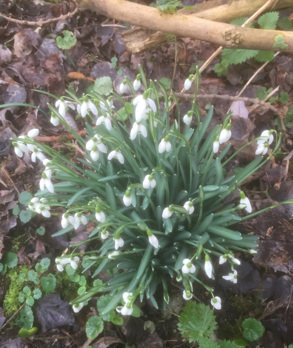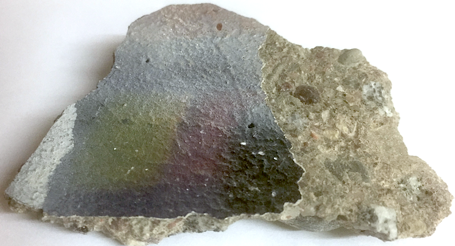Buy buy!
Personal Blogs
Why?
Bye!
Each bears a sorrow
Impossible to relinquish.
The Hicks Basin exists and we don't need a Large Hadron Collider to see it!
http://www.hicksandhicks.com/antiques/antique-basins/
"How will I know when the celestial wind blows?"
"You will see the guava tree wave."
Sire Lancelot was late atte the lists. Butte Sire Gawain was joust in time.
Everyone takes Paras A, B and C seriously. I just don't know why they laugh at Para D.
Me and some of the other Picts tried to invade. Problem was, we ran right up against the Large Hadrian Collider.
Roses are red, Violets are blue.
Phew.
Q. What do you call a man with an axe on his head?
A. Hugh
Our factory can supply similar jokes on demand. Please write for our catalogue.
Black grape — sign of mourning
Jujube — video sharing site
Lemon — arctic rodent
Medlar — interfering busybody
Pear — French dad
Quince — shrink with pain
Strawberry — two kinds of hat
"I'm fondue", I said.
But she's just gone "Bleu!"
Seems I wasn't goud enough.
Bitter winter rain
A woman cries out suddenly —
Oh, my little daughter!
There's a new internet service exclusively for cats. Billed as streaming "mew-vies", it's called Netfelix.
I see today's Google Doodle honors Dimitri Mendeleev who first described the periodic table. I can still remember the sense of wonder I felt, many years ago now, when I read that all chemical element fitted in to a system.
Because of that system it had been possible to predict the existence, and properties, of elements as yet unknown, but subsequently discovered by other investigators. This thought made me very excited and for a time I wanted to be a chemist.
By coincidence I've just been reading Primo Levi's book The Periodic Table. Published in 1975, it is a collection of short stories, each themed on a particular element. Two or three are works of pure imagination, but for the most part they are autobiographical, mainly from Levi's career as an industrial chemist in post-war Italy. Some draw on his experiences in Auschwitz.
Although the book wasn't published until the 1970s some of the stories seem to have been germinating for a long time. From something I read I believe final essay Carbon had been in Levi's mind since before his imprisonment. It is this story that first drew me to The Periodic Table (and later to Levi's other writing), because I read a very enthusiastic letter about it in a science journal, and I realized it was about an idea I've always had an interest in (and have tried to write about myself, but far less well).
In 2006 The Periodic Table was voted the best science book ever by the Royal Institution, in a very strong field. Paradoxically it probably won the prize because it is ultimately a humanistic book rather than a scientific one.
I've just finished reading Primo Levi's book about his time in Auschwitz.
He wrote as he said "to be a witness, not a judge", and even while in the camp made fugitive jottings on scraps of paper, although all had to be destroyed; had they been found he would have been executed.
He survived and was repatriated after a long and winding railway journey lasting nine months (the subject of a second book). Once home he soon started work on If This is a Man and had it finished by the end of 1946, less than two years after he had been freed from the camp.
Levi believed in rationality and wrote in a very objective way in order not to dilute his testimony. He hadn't been very good at Italian at school — more inclined to science — but the urge to tell his story to the world made him into a great writer.
These wild snowdrops bloom by a path I often take. In the middle ages it was a road but today it is only a track-way.

Linnaeus named this flower Galanthus nivalis; Galanthus from Greek gala+anthos, 'milk-flower', and nivalis from Latin 'of snow'.
The common name snowdrop is only recorded from the 17 c and the origin is unclear, although the Oxford English Dictionary suggests a connection with the German schneetropfen, which itself possibly comes from the name of a kind of earring once popular.
Surprisingly Galanthus turns to have pharmacological importance. Some species of the genus are a source of galanthamine, which was traditionally used in eastern European countries for treating polio, and is now used for slowing the progress of Alzheimer's.
* My title "The snow-drop paths of innocence" comes from W. R. Spencer.
Well I'm not fooled. You're looking for what you can steal before Spring does.
Snowdrop.

Pyramus and Thisbe were star-crossed lovers who wooed through a wall.
The story had an unhappy ending though. Mine has a better. The relic above is a fragment of the Berlin Wall, which divided East Berlin from West between 1961 and 1989, and cost many lives.
When we visited the Iron Curtain had just been raised, and there were still border guards — it was their job — but they waved us through with every appearance of relief.
When we came to the Wall most of it was gone but there were plenty of bits on sale. You can still buy them easily enough today, with a stamp of authenticity, but mine was authenticated by a hammer.
I was surprised just recently to find how much of the Wall has survived and where the bits are. It is a symbol of freedom prevailing against barriers (something poor Pyramus and Thisbe longed for) and so parts of it have been dispersed to every continent save Antarctica — a sort of wall-diaspora — as you can see in this marvelous piece of journalism.
http://www.theguardian.com/cities/2014/oct/28/-sp-where-on-earth-berlin-wall-25-years-fall
My landline is obsolete really. I just keep for the nuisance calls.
Q. What teaching approach sounds like someone who makes all the calls?
A. See comment
All on an Easter morn.
Five white swans came riding by
And beat us to the dawn.
The sky was clear and I saw before me/
The majesty of Orion. Seven stars.
Years ago I was riding pillion on my wife's motorcycle, on a winter night. I looked up and suddenly saw a constellation. "Look there's Orion!" I cried.
We swerved all over the road to avoid the lion.
I don't mind a bit of tality. But I don't want more.
I particularly dislike the fuh kind.
Q. How do you attract an English breakfast lover?
A. See comment
This blog might contain posts that are only visible to logged-in users, or where only logged-in users can comment. If you have an account on the system, please log in for full access.